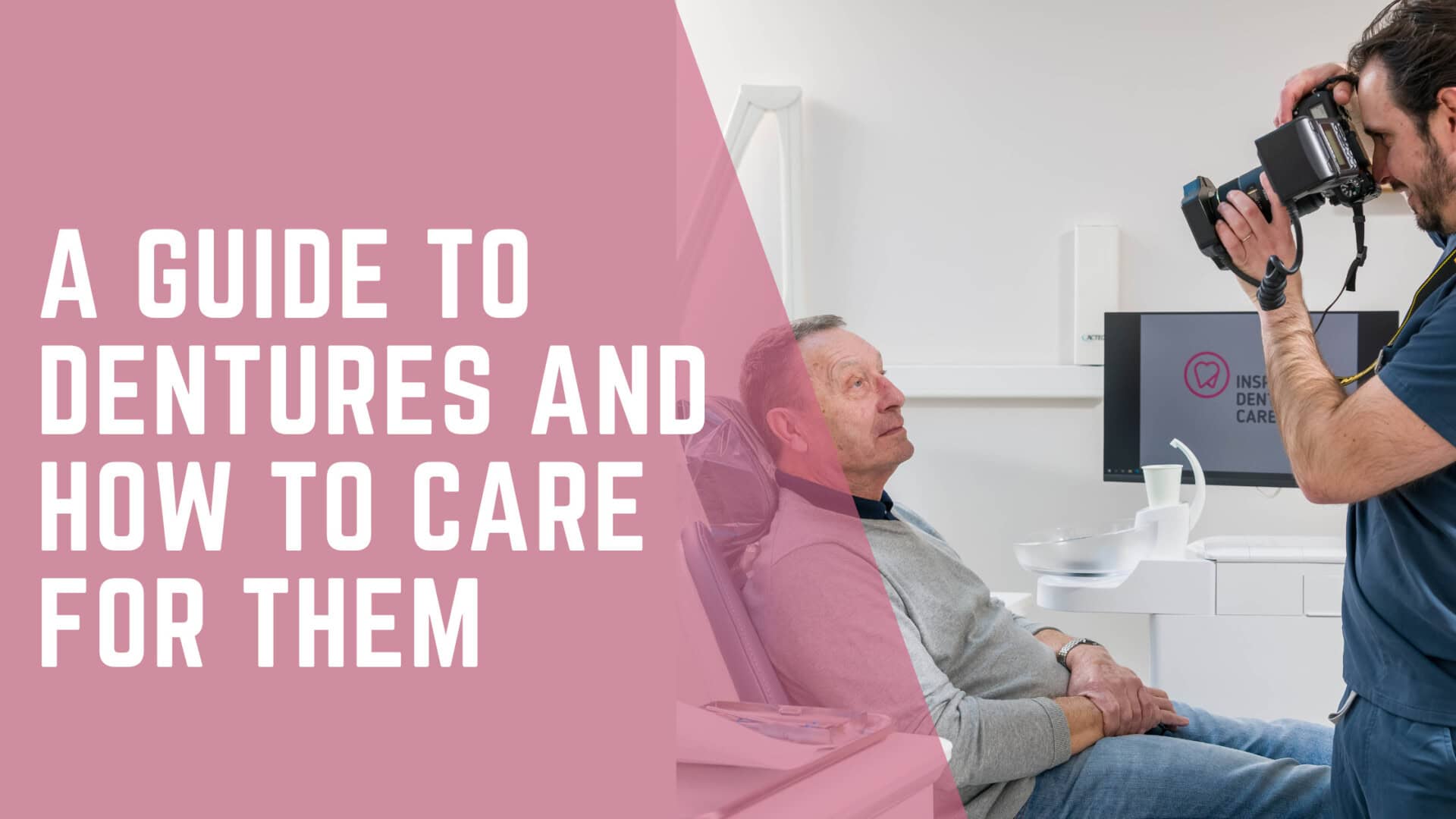A guide to dentures and how to care for them
What are dentures?
Dentures are removable false teeth made of acrylic (plastic) and/or metal. They fit snugly on top the gums and around teeth to replace any missing teeth and eliminate potential problems caused by gaps. Dentures can replace anything from single teeth (partial dentures) to full arches of teeth (complete dentures).
- Partial Dentures: These are used when some natural teeth remain. Partial dentures typically consist of replacement teeth attached to a pink or gum-coloured plastic base, sometimes connected by metal frameworks.
- Complete Dentures: These are used when all the teeth are missing. They can be conventional (made after the teeth have been removed and the gums have healed) or immediate (made in advance and placed right after the teeth are removed).
- Implant-Supported Dentures: These dentures are supported by and attached to dental implants. They provide a more secure fit and can be used for both complete and partial dentures.
Is it a problem to have missing teeth?
Having missing teeth does not always cause a problem, and lots of people live most of their adult lives with either a single or multiple missing teeth. However, it is important to be aware of potential issue caused by missing teeth, you should always consult your dentist on risks and benefits as well as treatments to fill the gap and replace the lost tooth.
Gaps left by missing teeth can cause problems with eating and speech. Food trapping is a common problem caused by missing teeth, meaning that when you eat food is packed into the gap causing potential pain and irritation to the gum and neighbouring teeth. In addition, the teeth either side of the gap caused by a missing tooth may begin to lean and drift into the space at an angle. This can become problematic in the long-term, as the roots of the teeth can become exposed leading to sensitivity and the teeth can become difficult to clean. Moreover, the opposing tooth (tooth above or below in opposite arch) can over erupt, meaning it can drift up or down into the space. This can cause issues with the bite and may also mean replacing the missing tooth and filling the gap to become impossible due to a lack of vertical height space. Some people may notice their speech is altered after a tooth is removed, especially if the tooth is at the front of the mouth. A lisp can sometimes develop due to the tongue being able to move freely into the gap and excess air and saliva being pushed through.
Benefits of Dentures
- Improved Appearance: Dentures can restore your smile and the structure of your face, which can be affected by missing teeth.
- Enhanced Functionality: Dentures improve the ability to chew and speak, functions often compromised by missing teeth.
- Boosted Self-Esteem: A complete, healthy-looking smile can significantly enhance your confidence and self-esteem.
- Affordable Option: Compared to other dental restoration methods like implants, dentures are often more affordable.
Cleaning regime
- Remove your dentures at night. It is very important to not wear your dentures whilst you are sleeping, your gums need to breathe and allow air and saliva to flow over them.
- Brush the denture(s). It is recommended that you remove your denture after eating to clean away any residual food. Your dentist will provide or recommend you use a specific denture cleaning brush, it is wider than a traditional toothbrush and has soft bristles that are not abrasive to the denture material, whether that is plastic or metal. You do not need to use toothpaste or soap to clean the denture, simply brush under cool running water. Dental professionals will advise for you to always clean them over a sink half-filled with water. This is in case of you dropping the denture, they will impact the water rather than hitting the sink which can cause the dentures to break or fracture.
- Brush remaining teeth. It is vital to continue brushing remaining teeth with an electric toothbrush and fluoride toothpaste. This will prevent the teeth from becoming decayed and the gums from developing disease.
Common Concerns
- Adjustment Period: New dentures may feel uncomfortable or loose for the first few weeks. With time, your mouth will adapt.
- Sore Spots: Initially, you may experience sore spots. Your dentist can adjust the fit to alleviate discomfort.
- Difficulty Eating: Start with soft foods cut into small pieces. Chew slowly and use both sides of your mouth.
- Speech Issues: Practice speaking aloud to help get accustomed to the dentures. Reading out loud can be particularly beneficial.
To conclude, dentures are a viable and effective solution for many individuals dealing with tooth loss. With the variety of options available today, they offer improved functionality, comfort, and appearance. By understanding the types, benefits, and proper care techniques, you can make informed decisions and maintain a healthy, confident smile.
If you’re considering dentures, consult with a member of our team to explore the best option for your specific needs and to ensure proper fitting and care.



